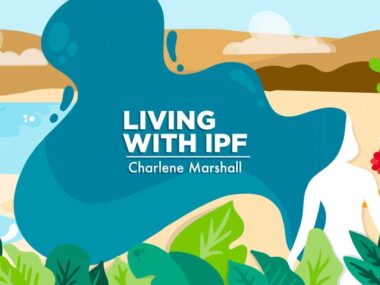First patient dosed in Phase 2b clinical trial of ENV-101 for IPF
WHISTLE-PF to test lung function changes in 200 adults across 14 countries
Written by |

The first patient has been dosed in a Phase 2b clinical trial of Endeavor Biomedicines’ investigational oral therapy ENV-101 (taladegib) in people with idiopathic pulmonary fibrosis (IPF).
WHISTLE-PF (NCT06422884) seeks to enroll around 200 adults in 14 countries. The first patient was dosed in Australia.
The study’s launch was backed by positive data from a Phase 2a trial (NCT04968574) that found ENV-101 could improve lung function and ease lung scarring in adults with IPF.
“Initiating the WHISTLE-PF trial is an important milestone for our company as we continue to develop ENV-101 for the treatment of IPF, a relentless disease that has a worse prognosis than most cancers,” John Hood, PhD, co-founder, CEO and chairman of Endeavor, said in a company press release.
“Following the positive results from our Phase 2a trial of ENV-101, Endeavor BioMedicines is now intensely focused on efficiently advancing the WHISTLE-PF trial to get this potentially transformative drug to patients as quickly as possible,” Hood said.
In IPF, inflammation and scarring (fibrosis) in the lungs make breathing difficult and lead to symptoms such as shortness of breath and cough. What causes IPF isn’t known.
Treatment options are limited and, while they can slow lung function decline, they can’t stop or reverse it, according to Endeavor. They also tend to have tolerability issues that limit their long-term use in most patients.
What does ENV-101 do in IPF?
ENV-101 is an oral therapy that’s designed to block the Hedgehog signaling pathway, which is involved in wound healing and forming scar tissue. The pathway is abnormally activated in lung diseases like IPF, which is believed to drive fibrosis in the lungs.
Endeavor believes blocking Hedgehog will enable ENV-101 to prevent excessive scar tissue formation and reverse fibrosis in IPF over time.
In the completed Phase 2a trial, 41 adults with IPF, ages 40 and older, were randomly assigned to receive oral tablets of ENV-101 (200 mg) or a placebo once a day for about three months.
The therapy led to significant improvements in lung function and increases in total lung capacity, which is the volume of air in the lungs after a deep breath, while both of these declined in those taking a placebo. A significant decrease in lung fibrosis relative to a placebo was also observed with ENV-101.
The investigational therapy was well tolerated, with the most common side effects being changes in taste, hair loss, and muscle spasms. No treatment-related serious side effects were reported.
WHISTLE-PF will evaluate the efficacy of various daily oral doses of ENV-101 against a placebo over six months in adults with IPF. Patients will be allowed to continue taking standard-of-care IPF therapies. The trial’s main goal is to evaluate changes in lung function. Safety, patient-reported outcome measures, lung capacity, and lung fibrosis will also be evaluated.
Endeavor announced this year that it had raised more than $130 million to support the clinical development of its pipeline, including ENV-101.




